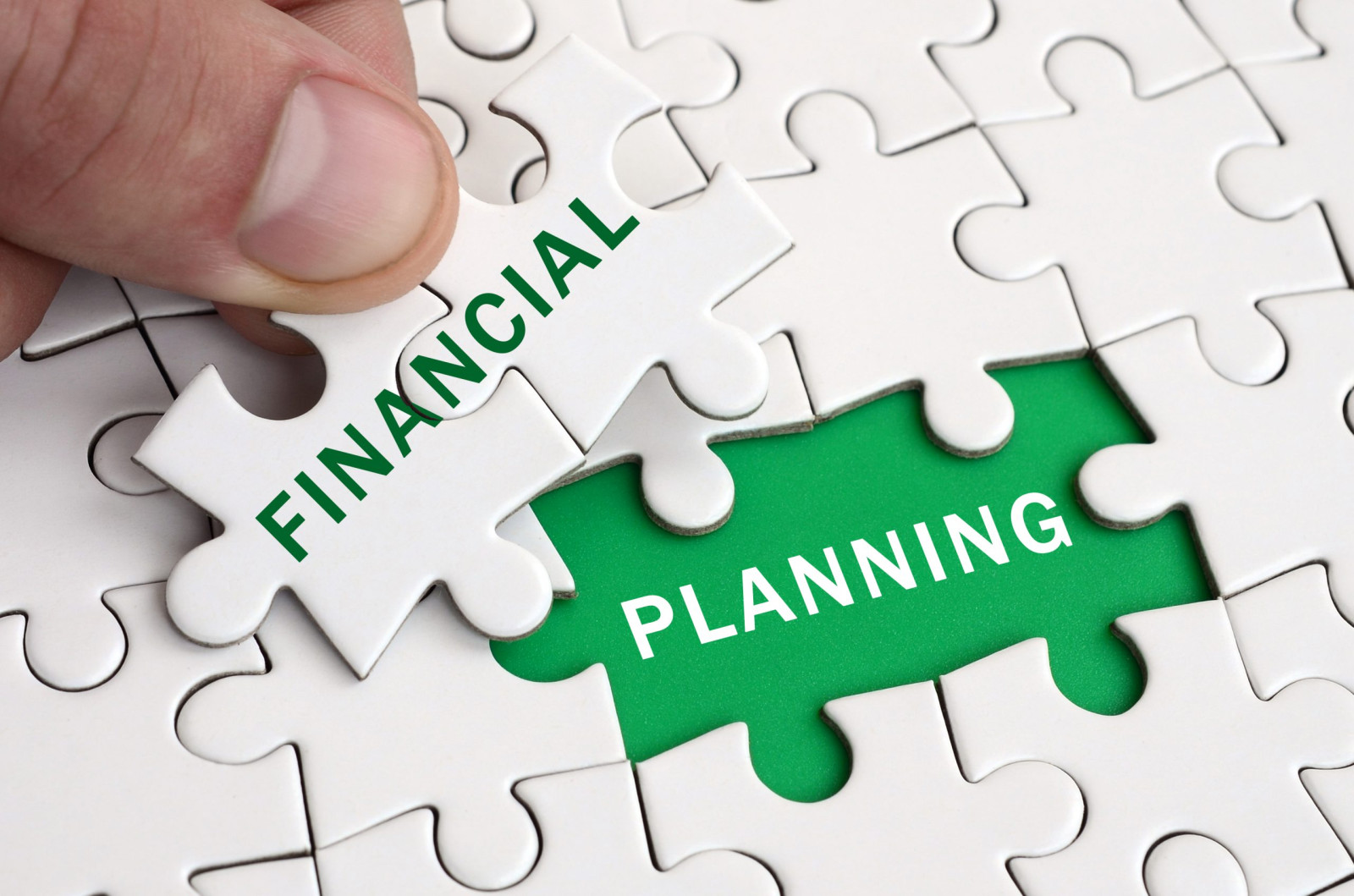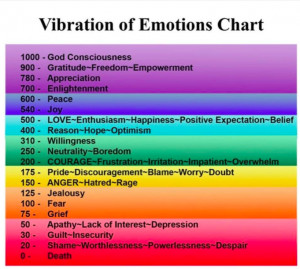
I have been thinking a lot about financial goals lately. Mostly, because I realized that i have a lot of work to do in that area.
Back in early 2020, when I decided to leave my husband, I was not in the best financial shape. Then I acquired a lot of debt with the divorce that followed. Followed quickly by a sizeable pay cut when I decided to quit my job, pack up everything and move to Florida.
I have been in Florida now for two years, and while my finances have improved, it has been a very slow process (damn finance charges!!). Now that I feel as though I am coming out of survival mode and breaking into thriving mode, I think it is time to set some financial goals that are both safe and challenging.
Safe because I am 48 and don’t want to gamble too much with my retirement. Challenging because I want to figure out how to get the biggest bang for my buck (literally).
When thinking about financial goals that you could set for yourself, consider these five examples:
Save for an emergency fund: Start by saving a safety net of $1,000 so you are able to stop using credit cards for emergencies. Aim to save three to six months' worth of living expenses in a separate, easily accessible account. This fund can provide a safety net in case of unexpected events like job loss or medical emergencies.
Pay off debt: Focus on eliminating high-interest debt first, such as credit card balances. Set a timeline and specific amount to pay off each month to gradually reduce your debt burden. Use the snowball method to help pay off debt faster.
Invest for retirement: Contribute regularly to a retirement account, such as a 401(k) or IRA. Take advantage of employer matching contributions if available and consider consulting a financial advisor to determine the best investment strategy for your goals.
Save for a major purchase: Whether it's a down payment on a house, a new car, or a dream vacation, setting aside a specific amount each month can help you reach your goal without resorting to credit.
Build a diversified investment portfolio: Research different types of investments, such as stocks, bonds, mutual funds, and real estate. Diversifying your investments can help spread risk and increase the potential for returns over time.
Setting clear, achievable financial goals can pave the way to a secure and prosperous future. Remember to review and adjust your goals regularly to reflect changes in your life circumstances and financial situation.
Do you have any financial goals that you want to share?

I am currently reading Tara Schuster’s “Buy Yourself the F**king Lilies”. Tara’s insight and relatability have rocked my world. The biggest takeaway for me so far, is the simple note that “what i want to be true of myself in the future is my responsibility to make true now”
In the fast-paced world we live in, it's easy to get caught up in the hustle and bustle of daily life, often overlooking the importance of long-term goals and aspirations. However, envisioning what we want to be true of ourselves in the future is not just an idle daydream; it is a powerful motivator that can shape our present actions. The concept of "what I want to be true of myself in the future is my responsibility to make true now" serves as a guiding principle, reminding us that our future selves are shaped by the choices we make today.
Setting clear and attainable goals is crucial. Without a well-defined vision of where we want to be, it is challenging to take meaningful steps toward that destination. Imagine your future self, five or ten years down the line. What do you see? Whether it's a successful career, a healthy lifestyle, or strong relationships, having a vivid picture of your desired future can provide the clarity needed to prioritize your actions. It is your responsibility to break down these goals into actionable steps and integrate them into your daily routine.
Another significant aspect is the importance of self-discipline and consistency. Achieving long-term goals requires sustained effort and perseverance. It's easy to get discouraged by setbacks or to procrastinate, but maintaining a disciplined approach is key to progress. This might mean setting aside time each day for personal development, whether it’s learning a new skill, exercising, or dedicating time to a passion project. By consistently making small, positive choices, you create a ripple effect that propels you closer to your envisioned future.
Cultivating a growth mindset is essential. Embracing the belief that you can grow and improve through effort and learning can transform your approach to challenges. Instead of viewing obstacles as insurmountable barriers, see them as opportunities for growth and learning. This mindset shift empowers you to take ownership of your journey, understanding that every experience, whether positive or negative, contributes to your development. Your future self will thank you for adopting a perspective that encourages resilience and adaptability.
Surrounding yourself with a supportive community can make a significant difference. Engaging with like-minded individuals who share your aspirations can provide motivation, encouragement, and valuable insights. Seek out mentors, join groups or communities that align with your goals, and build relationships that foster mutual growth. The journey to becoming your future self is not one you have to undertake alone; the collective wisdom and support of others can be a powerful catalyst for your personal transformation.
Envisioning what you want to be true of yourself in the future and taking responsibility to make it happen now is a profound and empowering approach to life. It requires setting clear goals, maintaining self-discipline, adopting a growth mindset, and surrounding yourself with a supportive community. By taking these steps today, you pave the way for a future that reflects your deepest aspirations and values. Remember, the power to shape your future lies in the choices you make in the present.

The Vibration of Emotions Chart is a compelling tool that maps human emotions on a vibrational scale, showing how different feelings can affect our energy and well-being. Lower vibrational emotions like shame, guilt, and apathy drain energy, leaving us feeling stuck or disconnected, whereas higher vibrational emotions such as love, joy, and peace uplift our spirits and promote harmony and fulfillment.
Understanding this chart can empower individuals by offering a visual representation of emotional states and their influence on life. By choosing thoughts and actions that foster higher vibrational emotions, we can create more positive and fulfilling life experiences. Recognizing whether interactions with others elevate or decrease our vibrational frequency is crucial in managing our energy.
Determining your current vibrational frequency involves reflecting on your predominant emotions and incorporating practices such as mindfulness, meditation, and gratitude to elevate emotional states. The ultimate goal is to acknowledge lower vibrational emotions without self-judgment and take steps to foster a more uplifting emotional landscape, enhancing overall well-being and creating a more harmonious life.
Read more...Self-love is a crucial aspect of our overall well-being. In this blog post, we will explore what self-love is, the benefits it brings, and how to cultivate it in our lives.
When we practice self-love, we become more resilient to life's challenges and setbacks, as we are better equipped to handle them with a positive and compassionate mindset. Self-love also helps us to set healthy boundaries, prioritize self-care, and cultivate meaningful relationships with others.
Self-love is the practice of accepting and appreciating oneself for who they are, including our strengths, weaknesses, flaws, and imperfections. It's all about treating yourself with the same kindness, concern, and support as you would a loved one.
Practicing self-love can have a significant impact on our lives. It can improve our mental and emotional health, increase our resilience, and lead to better relationships with others. When we love ourselves, we are better able to love and care for those around us.
Developing self-love requires time and effort. Here are some tips to help you get started:
- Practice self-care: Take time for yourself, do things that make you happy, and take care of your physical health. Self-care is an essential part of maintaining a healthy and balanced lifestyle. It is essential to prioritize your mental and physical health to avoid burnout and stress. Taking time for yourself can involve engaging in activities that bring you joy, such as reading, meditating, or spending time in nature. Additionally, it is crucial to take care of your physical health by eating a balanced diet, getting enough exercise, and getting enough sleep. Remember, taking care of yourself is not selfish; it is necessary to ensure that you can be the best version of yourself for your loved ones and the people around you.
- Be kind to yourself: Treat yourself with compassion, avoid self-criticism, and practice positive self-talk. It's easy to fall into the trap of being overly critical of yourself. Sometimes we hold ourselves to impossibly high standards and beat ourselves up when we inevitably fall short. But it's important to remember that nobody is perfect, and it's okay to make mistakes and have flaws. One way to be kind to yourself is to treat yourself with compassion. Instead of berating yourself for your shortcomings, try to understand that you're doing the best you can in the moment. Treat yourself the way you would treat a close friend who is going through a tough time. Another important aspect of being kind to yourself is avoiding negative self-talk. It can be tempting to focus on your weaknesses or dwell on past mistakes, but this kind of thinking can be harmful to your mental health. Instead, practice positive self-talk by focusing on your strengths and reminding yourself of all the things you're capable of. By treating yourself with compassion and practicing positive self-talk, you'll be better equipped to handle life's challenges and enjoy the good times.
- Set boundaries: Learn to say no, prioritize your needs, and avoid letting others define your worth. Setting boundaries is an important aspect of maintaining a healthy lifestyle. It involves understanding your limits and communicating them effectively with others. Learning to say no can be difficult, especially when you feel obligated to please others. However, prioritizing your needs and recognizing your own worth is essential for personal growth and well-being. By setting boundaries, you can protect your time, energy, and emotional health, and ensure that you are living a balanced and fulfilling life.
- Forgive yourself: Let go of self-blame and negative self-judgment. Forgiving oneself can be a powerful tool for personal growth and healing. It allows us to let go of the past and move forward with a renewed sense of purpose. However, it can be difficult to do so, especially when we are used to being hard on ourselves. To begin, we must let go of self-blame and negative self-judgment. This means acknowledging our mistakes and shortcomings without allowing them to define us. We must also be kind to ourselves and practice self-compassion. This can involve talking to ourselves in the same way we would talk to a friend, with understanding and encouragement. Remember, forgiving oneself is a process that takes time and effort, but the rewards are worth it. By doing so, we can create a more positive and fulfilling life for ourselves.
Self-love is not a selfish act; it's an essential one. Remember, you are worthy of love and respect, and it all starts with you. By prioritizing our own needs and desires, we can lead a more fulfilling, happier, healthier and authentic life, which ultimately benefits not only ourselves but also those around us. So let's make self-love a priority in our lives and nurture a positive relationship with ourselves.



